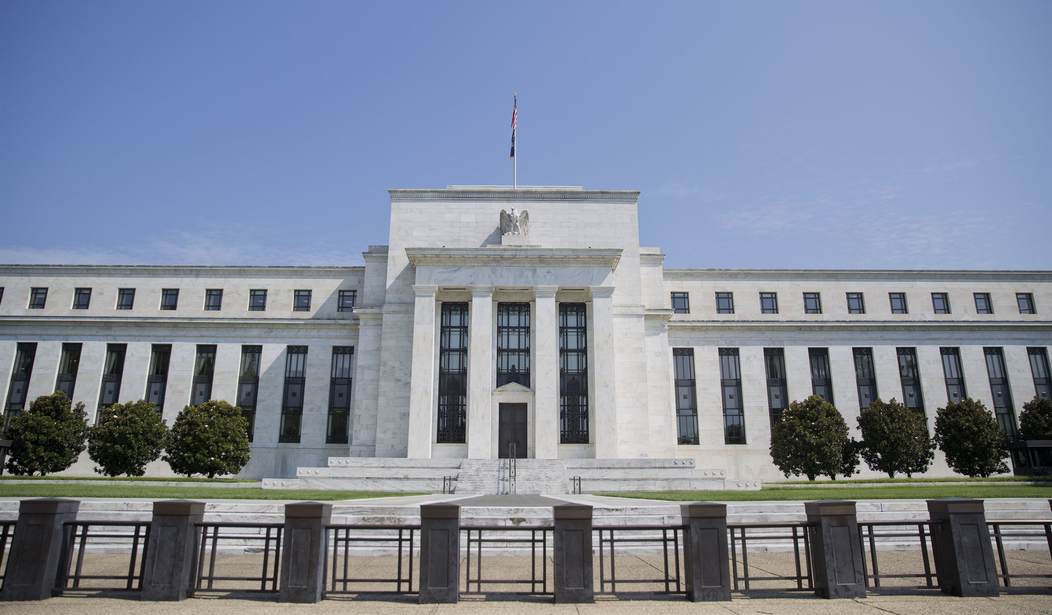The American experiment has always been based on a complicated balance of powers, with no single government entity capable of unilateral action. At least, that was the case before the creation of the Federal Reserve. Nowadays, the Fed remains a potent political force of unelected bureaucrats, ready and willing to steer the economy in the direction they see fit. It’s a potentially dangerous precedent to be sure, and Congress would be wise to contain it.
On September 25, 2019, the U.S. Senate Committee on Banking, Housing, and Urban Affairs will hold a hearing on the topic of “Facilitating Faster Payments in the U.S.” It’s a topic of fundamental importance in today’s political landscape, determining whether the Fed can compete against the private sector. In early August, the Fed announced that it will establish its own real-time payment (RTP) system. Upon completion, the service—called FedNow—would allow banks in the United States the ability to offer instantaneous payment transfers between financial institutions.
It’s certainly a big step— which our legislative bodies have a duty to vet thoroughly. In attendance at the Senate Committee meeting will be Esther L. George, President and CEO of the Federal Reserve Bank of Kansas City. She and the Fed will have the chance to demonstrate why they believe a federally-run RTP system is justified. But more than that, the hearing will be a fantastic opportunity for Congress to reclaim its authority over the Federal Reserve, ensuring that their RTP system meets the needs of consumers.
But how could the Senate rein in an independently-operating agency like the Federal Reserve? Through a law passed by the Senate Banking, Housing, and Urban Affairs Committee itself: The Monetary Control Act of 1980.
Recommended
Among a myriad of other regulations, the Monetary Control Act placed a particularly relevant qualifier on the Federal Reserve’s power when it comes to the issue of real-time payments. The law states that the Fed can itself intervene in America’s payment system only if “the service is one that other providers alone cannot be expected to provide with reasonable effectiveness, scope, and equity.” That’s certainly a big “if,” especially considering that the private market for RTP systems is already thriving in the United States.
If under the Monetary Control Act, the Federal Reserve has indeed violated its mandate, it is incumbent upon the Senate to ensure that the Fed system will not create more problems than it will solve. But how would the Senate know if the Federal Reserve is misbehaving, and more importantly, what can be done to assure that the right protective measures are put in place?
The first question Congress needs to ask is whether the FedNow RTP system will be interoperable with the private sector. That is, will the Fed’s real-time payment service work with preexisting, private RTP providers, or will the Fed’s proposal effectively cannibalize the entire marketplace? Congress has a responsibility to make sure that the latter possibility never becomes a reality. Because, if it did, not only would wildly successful American enterprises be ruined, but consumer choice and connectivity would also suffer.
Asking the Fed about implementing proper consumer protections needs to be a principal concern at the Senate hearing as well. Under the current RTP marketplace, Big Tech’s instantaneous transfer systems, like Google Pay and Amazon Pay, are required to operate through a chartered bank. That is because chartered banks have safety and soundness regimes that protect consumer information. The regulations on these banks extend far beyond the requirements expected of Google, Amazon, and companies of similar profile under the Gramm-Leach-Bliley Act. Congress must ensure that the Fed’s RTP system does not become a loophole for large corporations to skirt the law and get direct access to the Fed. Otherwise, a federally-run RTP system would only create the possibility and incentive for abuse and corruption.
Committee members should ask whether the Fed’s system will treat all banks the same.The chief argument in favor of FedNow is to protect small financial institutions. However, as the operator of the country’s check clearing service, the Fed already has a history of providing significantly cheaper pricing to big banks. Without offering Congress a clear commitment to flat pricing, any argument in favor of the central bank intervening in the RTP arena loses its teeth entirely.
Chairman Mike Crapo and the rest of the Senate Committee on Banking, Housing, and Urban Affairs have not only the right, but the duty to hold the Federal Reserve’s feet to the fire. By announcing its plans for FedNow, the Fed has seemingly ignored Congress’ parameters for Fed intervention in the real-time payments business. The least the committee can do now is mandate the requirements of its new system, while threatening further action should it choose not to abide.
America’s central bank may be independent, but it is not above the law. It’s Congress’ obligation to keep it that way.

























Join the conversation as a VIP Member